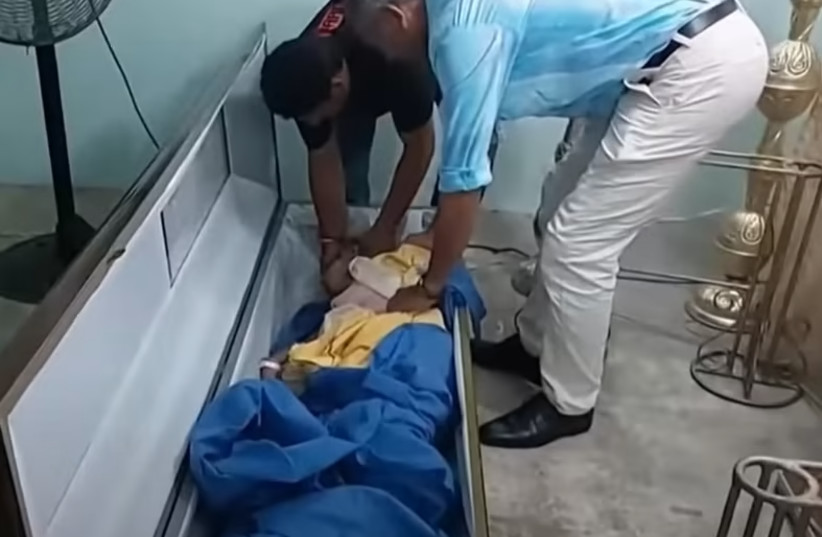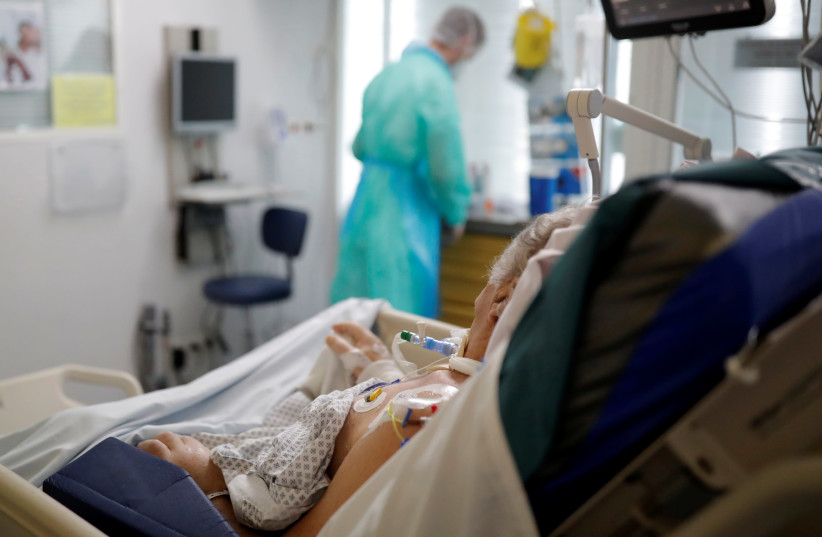From time to time, extraordinary stories surface, recounting instances where individuals were declared deceased but miraculously returned to life shortly after, some even in the midst of their own funerals. In a fascinating revelation, a doctor with two decades of experience in the field explains the underlying factors contributing to these remarkable resurrections.
Waking up in a grave — a chilling concept often reserved for nightmares or gripping horror films. Yet, tragically, such tales occasionally transcend fiction and materialize into real-life events. Just recently, an Ecuadorian woman regained consciousness moments before her burial, at her own funeral, after having been pronounced dead by funeral home staff hours earlier.
Prior to this, a 66-year-old woman in the early stages of dementia had been declared deceased, only to be discovered breathing when the body bag was unzipped. Common medical indicators, such as the absence of breathing or a pulse, fixed and dilated pupils, and unresponsiveness to stimuli, typically ascertain the passing of an individual.
However, in certain instances, patients initially deemed deceased based on these signs exhibit signs of life once again.
 A 76-year-old woman, who was declared dead at a hospital in Ecuador's Babahoyo, shocked her family when she knocked on her coffin during her wake on June 9. (credit: Walla)
A 76-year-old woman, who was declared dead at a hospital in Ecuador's Babahoyo, shocked her family when she knocked on her coffin during her wake on June 9. (credit: Walla)Dr. Stephen Hughes, a highly regarded lecturer in medicine at Anglia Ruskin University in the United Kingdom, describes such occurrences as exceedingly rare. In a thought-provoking article for The Conversation, he recounts encountering two such cases during his distinguished 20-year career as a consultant physician.
"This subject carries a significant amount of discomfort, rendering it challenging to discuss openly. Nevertheless, the patient has since made a full recovery"
Dr. Hughes
Resurrected patients
The first encounter with this peculiar phenomenon involved a woman afflicted with epilepsy who had ingested an overdose of phenobarbital —a n anti-epileptic medication that aids in managing the condition. As certain medications can diminish reactivity and slow down respiration and blood circulation, Dr. Hughes could not detect the patient's heartbeat or breathing, leading him to pronounce her deceased.
However, upon arrival at the morgue, a surprising event unfolded — her leg unexpectedly began to move. "This subject carries a significant amount of discomfort, rendering it challenging to discuss openly. Nevertheless, the patient has since made a full recovery."
Dr. Hughes proceeded to recount another incident that unfolded under his watch, involving an elderly woman who was initially declared dead, but shortly thereafter, her breathing and heart function spontaneously recommenced, albeit for a brief period.
These astonishing cases continue to puzzle medical professionals, highlighting the enigmatic nature of life and death. While such events remain exceptionally rare, they serve as a testament to the complexities of human physiology and the limits of our current understanding. Dr. Hughes' insights shed valuable light on these captivating occurrences, inviting further exploration into the mysteries surrounding life's delicate balance.
The extraordinary events described by Dr. Hughes challenge conventional understanding and urge us to delve deeper into the intricate dynamics between life and death.










